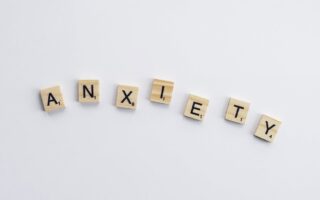Anxiety is a common experience that affects people from all walks of life. Whether it’s the nagging worry about an upcoming event, the overwhelming sense of dread during stressful situations, or the persistent feeling of unease without a clear cause, anxiety can be a debilitating and exhausting condition. However, by understanding the nature of anxiety and implementing effective coping strategies, it is possible to regain control and find a sense of calm amidst the storm.
Understanding Anxiety
Anxiety is a natural and adaptive response that helps us recognize and respond to potential threats or dangers. It activates the body’s fight-or-flight response, triggering physical symptoms such as increased heart rate, rapid breathing, and muscle tension. While this response can be beneficial in genuinely threatening situations, anxiety disorders occur when the body’s stress response is triggered excessively or inappropriately, leading to frequent and excessive worry, fear, and distress.
Identifying the Root Causes
To effectively manage anxiety, it is crucial to identify the underlying causes or triggers. These can range from specific stressors, such as work or relationship problems, to more general concerns like health issues or financial worries. In some cases, anxiety may be rooted in traumatic experiences or deep-seated insecurities. Taking the time to reflect on the situations or thoughts that provoke anxiety can provide valuable insight and help develop targeted coping strategies.
Cognitive Behavioral Therapy (CBT)
Cognitive Behavioral Therapy (CBT) is a highly effective and widely-used approach for managing anxiety disorders. CBT focuses on identifying and challenging negative thought patterns and irrational beliefs that contribute to anxious feelings. Through CBT, individuals learn to reframe their thinking and develop more adaptive coping mechanisms, ultimately reducing the intensity and frequency of anxiety symptoms.
Relaxation Techniques
Incorporating relaxation techniques into daily life can be a powerful tool for managing anxiety. Practices such as deep breathing exercises, progressive muscle relaxation, visualization, and mindfulness meditation can help calm the mind and body, counteracting the physiological effects of anxiety. These techniques can be practiced anywhere and can provide immediate relief from anxious thoughts and physical symptoms.
Lifestyle Changes
Making positive lifestyle changes can significantly impact anxiety levels. Regular exercise, a balanced diet, and adequate sleep are crucial for maintaining overall well-being and reducing stress. Additionally, limiting caffeine and alcohol consumption, which can exacerbate anxiety symptoms, and engaging in enjoyable activities or hobbies can help promote a sense of calm and emotional balance.
Building a Support System
Seeking support from loved ones, mental health professionals, or support groups can be invaluable in the journey toward managing anxiety. Having a strong support system can provide emotional encouragement, practical advice, and a sense of community, which can be particularly helpful during challenging times. Additionally, seeking professional help from a therapist or counselor can provide personalized guidance and evidence-based strategies for overcoming anxiety.
Embracing Self-Care Self-care
is an essential aspect of managing anxiety. Taking time to engage in activities that promote relaxation, enjoyment, and personal growth can help reduce stress and cultivate a more positive mindset. This could include practicing yoga, reading inspiring books, engaging in creative pursuits, or simply setting aside time for self-reflection and personal development.
Anxiety can be a formidable challenge, but it is important to remember that it is a manageable condition. By understanding the nature of anxiety, identifying its root causes, and implementing effective coping strategies, individuals can regain a sense of control and find the calm they seek. It is a journey that requires patience, persistence, and self-compassion, but with the right tools and support, overcoming anxiety is achievable.















